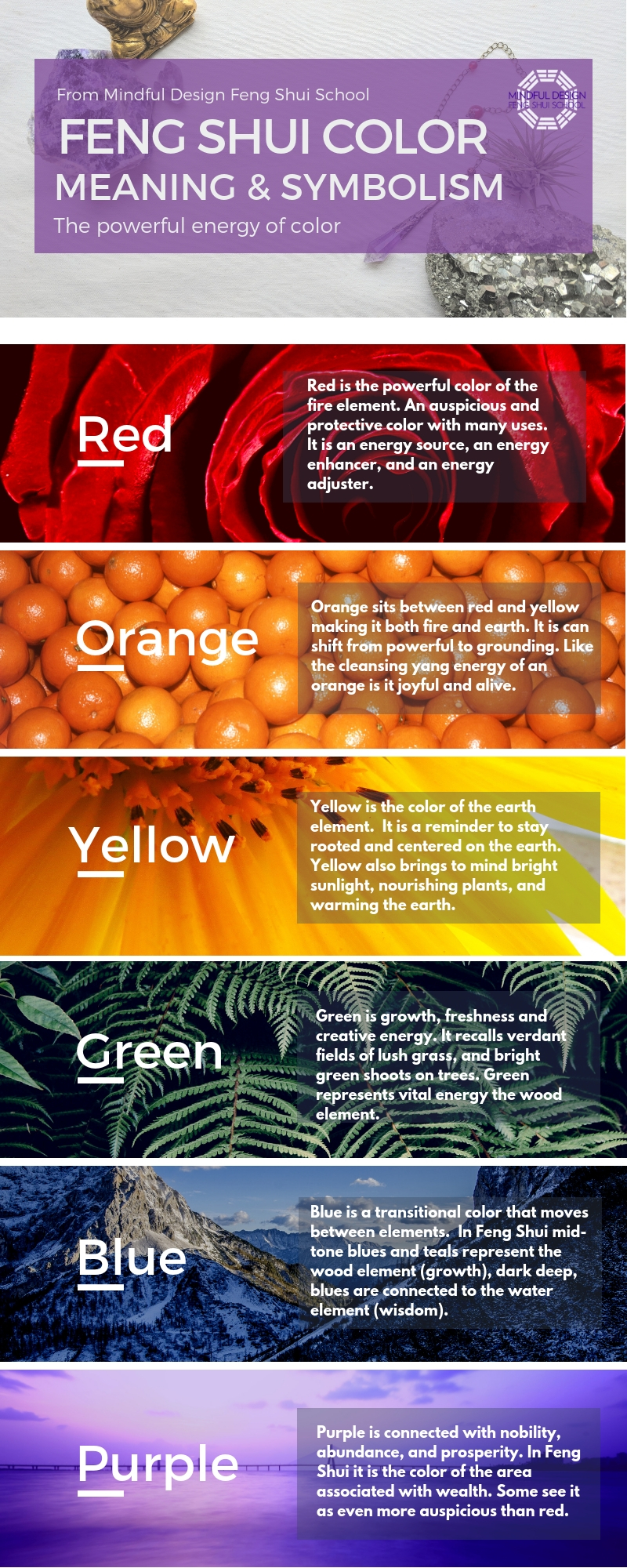Feng Shui & Color: How color impacts your energy

Photo by Steve Johnson on Unsplash
We often get asked about how to choose colors when decorating, and for good reason; color is a powerful design tool that can have a big impact. Have you ever noticed a shift in your mood after walking into a brightly colored room? Maybe you even find yourself gravitating towards certain rooms in your home because you like the way the colors in those rooms make you feel.
In addition to having an effect on our emotions, color also affects our energy, or qi. Feng shui practitioners use color as a tool to: adjust the flow of qi, balance the occupant’s energy, and even for protection. Feng shui color theory is multi-faceted, one color system is based on the five elements and inspired by the natural world. Other feng shui color systems are connected with ancient Buddhist and Taoist traditions. Color can be a simple way to shift the energy in a space.
Try this: when designing your space, think about the intention of that space, then start small, and add one or two colors that will support this intention. To get you started, here is a summary of how different colors affect us energetically:
-
Red
Red is associated with the fire element. It’s very stimulating, so it’s not the best choice if you want to create a relaxing environment. It evokes passion and inspiration, and can increase your visibility. Because it’s so intense, a little red goes a long way!
-
Pink
Pink has a soft, romantic, feminine energy. It helps to attract love, romance, and friendship. Because of this, pink is a great color to use in bedrooms--try using it in accessories or a soft pink for your sheets.
-
Yellows and Browns
These colors are associated with the earth element-- like fertile soil. Like the earth, these colors provide a grounding energy and are especially supportive in creating stability and security.
-
Green
Green represents the wood element, as well as new growth and creative energy. It is soothing, like plants in the natural world. Houseplants are a great way to bring the color green into your home, but if you don’t have a green thumb, decorating with green paint or artwork also works well.
-
Blue
In feng shui, mid-tone blues and teals are connected to the wood element, while deeper navy blues are connected to water. Like green, blue is healing and tranquil. This makes it a great choice for spaces where you like to relax or meditate.
-
Purple
Purple is related to prosperity and abundance. It’s a great color to use in areas where you would like to invite contemplation. Amethyst crystals are a great way to include the color purple in your environment.
-
Black
Black represents the water element and wisdom. It is the most yin color. Because too much black can be overpowering, try incorporating it in smaller doses, like a black picture frame or chair.
-
Grey
Grey is a very peaceful and soothing color because it is a balance of black (yin) and white (yang). Grey is a great neutral hue to use in most spaces to support the intention of other colors.
-
White
White represents the metal element and yang, or active, energy. White can be cold and harsh when used in excess, but can be a helpful element to incorporate when we want a blank slate, or more communication and productivity.
As you choose colors for your home, think about how the different colors and energies work together. Does your kitchen feel cold and unwelcoming? Add in colors that provide warmth to create a balanced space. Does your bedroom feel too active and stimulating? Try incorporating colors that feel more soothing.
